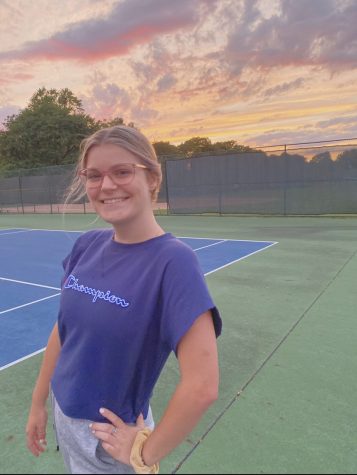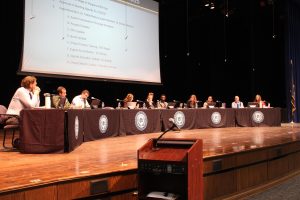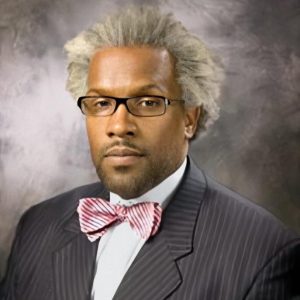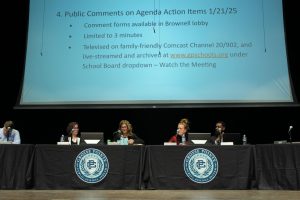The struggles of religion during COVID-19
February 5, 2021

As a result of the COVID-19 pandemic, churches have had to change their typical services and adapt to guidelines presented by the governor. Michigan guidelines allow reduced-capacity church services in-person, but a new Grosse Pointe church is all virtual due to problems securing a facility.
Dusty Otis is the founding pastor, and he started his church, Redefined, in January 2020. COVID-19 caused the church to lose its lease space, making it fully online.
“Being online, in my opinion, has been extremely hard,” Otis said. “We had no intentions of being online so we had to create and build what we are currently doing. Changes are still happening.”
Otis said that between platforms, they are seeing 500-700 people per week. He thinks this is due to many churches being online, which causes people to “church shop”.
“I believe a lot of our views are because we still have a great following from where we came from,” Otis said. “Reality is, not many people know about us as we were just 10 weeks old when COVID hit.”
Redefined started out of Trombly in January, but was unable to use that space after March because of the pandemic. Otis has been streaming from his house since mid-March and continues to do so.
“Space is limited in (Grosse Pointe), so we have ventured into the surrounding areas,” Otis said. “But people aren’t too eager to open or rent just yet, and places for sale are just not move-in ready” Otis is optimistic about the future of Redefined and believes this year will be their best for local outreach. He said his most important message is helping people move forward in their faith.
“It takes great faith, patience, perseverance, and trust to continue, especially with the extreme limitations of COVID, being a start up church and lack of support,” Otis said. “But we see tiny wins all over and believe our best days are our next days.”
Lydia O’Halla ’22 went from completely online services to some in-person opportunities with her church.
“When our church was online I still got a lot from the sermons, but the worship was weird for sure,” O’Halla said. “Unless you want to awkwardly sing along next to your family on the couch, there wasn’t really a way to participate in that.”
O’Halla said that her church has adapted to keep everyone safe in-person, while still offering a fully online option.
“In-person, they have a masked section and a non-mask section, which gives people the choice,” O’Halla said. “I hope that church continues to get closer and closer to some normalcy.”
O’Halla said her church is making strides to return to what it was like before the pandemic, which she believes is positive.
“My church, for example, just opened back up the children’s program, which allows families with young kids to be able to come and sit through the sermon,” O’Halla said. “This gives me hope that one day it will be back to normal.”
Sarah Nishchick ’22 said her church was online for the first five months of quarantine. It now has a hybrid model that allows people to go in-person and choose to wear a mask or no mask, as well as a fully virtual option.
“Online was super odd and challenging for me and others I know of,” Nishchick said. “Being surrounded by community is such a core part of faith.”
Nishchick said that some aspects of being online were beneficial because it strengthened her personal relationship with God, but also made her feel isolated and lonely.
“It’s hard to feel encouraged in your faith when you feel all alone,” Nishchick said. “I think it challenged me to see God in other ways which was good. I am hopeful to return to some form of normalcy and be surrounded by the community again.”















































































